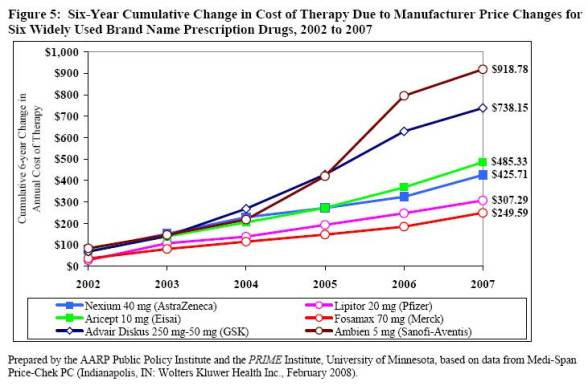I think it was earlier this year when LinkedIn rolled out a new feature called questions which allows you to pose questions to LinkedIn users and get answers. I continue to like this tool, and it has been interesting to watch it evolve from a “startup” (when I joined there were less than 2M members) to a tool that well over 10M people use and has gotten lots of press.
I finally decided to pose a question:
Do you have any good (or bad) examples of healthcare communications? I am looking for how your healthplan, disease management company, pharmacy, or PBM communicates with you. What worked or isn’t working? This could include letters, websites, phone calls, social media, etc. Examples might include communications around moving you to a 90-day prescription, moving you to a generic drug, improving your awareness of a disease, addressing compliance and adherence, reducing your out-of-pocket costs, etc.
I received four answers:
Answer One: I had some great success marketing to Medicare members by conducting health and fitness seminars as well as bring in experts to discuss retirement and other topics of interest. Initially, I’d obtain a 3% response through postcards and an additional 1.0% through phone calls. Conducting a series of seminars in one area can also bring in additional attendees (0.5%), through word-of-mouth buzz.
I found seminars to work well because the attendees were getting something of true value for their time (information and a social event with their peers) and I had a captive audience to market. A win, win situation.
Answer Two: My experiences with Blue Cross have been pretty good, there’s the health mag they send out with information articles, etc. I’ve never been able to access the website services though, something to do with the number that CS can never work out though I’ve tried on several occasions. I love my primary doctor and feel she and her partner give excellent care and plenty of information to their patients. They’re the only ones who’ve ever given me a reading list and web printouts! It was just a general question I had, not a condition I suffer from.
In addition to other tasks, I handle the health documents for the children enrolled with us and find that often the doctors have done a very poor job in informing the parents of what to watch for, what a result means, etc. Their offfice staff often do a shoddy job of filling out the forms correctly. Last month I recieved paperwork for a child, the physical form stated passed 20/20 for vision, it was accompanied by a referral from the doctor for a full eye exam as the child had failed the eye test miserably! I once received a normal hearing result for a child we knew was deaf as a door nail. When trying to get an insurance company to cover a needed service or therapy for such is incredibly difficult with that kind of paperwork.
Thanks for the opportunity to raise awareness!
Answer Three:
Aetna sent me a letter suggesting several plan options that may be cheaper than the one I currently have. That was a positive. I wish that I could compare the plans side by side on the website. It is difficult to remember the details of each one as you look at them individually.
Answer Four: As a health promotion practitioner, we are at a time when the national consciousness of health has never been higher. The most important thing we can do at a workplace is create individuals and systems that are health literate. We spend enormous amounts of money in our wrongly terms “health care” system. What we actually have is a “sick care” system, and what is truly missing are incentives and action by companies to recognize the billions of dollars we could save and then return to economy by protecting our workforce with sound health promotion. Our children are contracting early onset adult diabetes and we commonly refer to our bleak situation of the obesity epidemic. Our “health care” system, and thus the traditional “disease management” is from a biomedical chronic disease model.
It is time to work at reducing costs related to health care and absenteeism from a proactive rather than reactive approach. Many companies and organizations provide services that have yielded significant economic returns from building well companies.
According to the the NIH, most people are unhappy with our current system, and unable to continue to straddle the costs of ever increasing health care. We can avoid chronic disease by acknowledging new paradigms of business operations that include well companies. For information, contact www.positivepurposeinc.com

 June 29, 2008
June 29, 2008 









